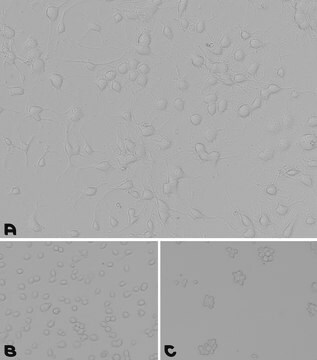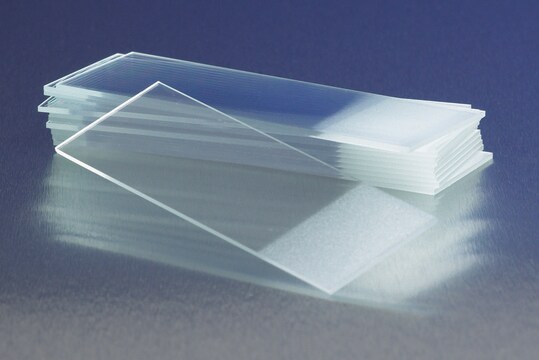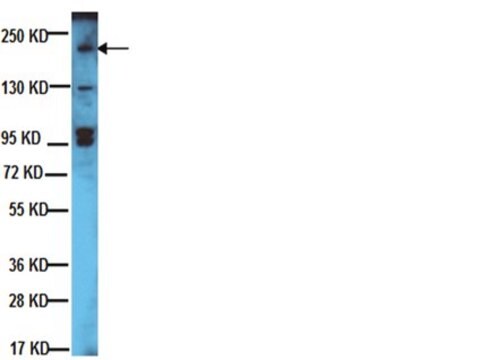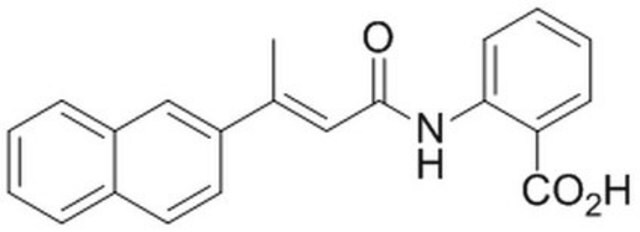Recommended Products
Biochem/physiol Actions
Protein Target: Alkaline Phosphatase
Quality
Routinely evaluated by using the phosphopeptide as a substrate for Alkaline Phosphatase in a non-radioactive malachite green based enzyme assay. The assay was performed using the Alkaline/Acid Phosphatase Assay Kit (R-R-A-pS-V-A), (17-128).
Physical form
Lyophilized powder
Storage and Stability
Lyophilized: Stable for 2 years at 4°C . Rehydrated: Stable for 1 year at -20°C.
Legal Information
UPSTATE is a registered trademark of Merck KGaA, Darmstadt, Germany
Disclaimer
Unless otherwise stated in our catalog or other company documentation accompanying the product(s), our products are intended for research use only and are not to be used for any other purpose, which includes but is not limited to, unauthorized commercial uses, in vitro diagnostic uses, ex vivo or in vivo therapeutic uses or any type of consumption or application to humans or animals.
Storage Class
11 - Combustible Solids
wgk_germany
WGK 3
flash_point_f
Not applicable
flash_point_c
Not applicable
Certificates of Analysis (COA)
Search for Certificates of Analysis (COA) by entering the products Lot/Batch Number. Lot and Batch Numbers can be found on a product’s label following the words ‘Lot’ or ‘Batch’.
Already Own This Product?
Find documentation for the products that you have recently purchased in the Document Library.
Synthetic peptides as model substrates for the study of the specificity of the polycation-stimulated protein phosphatases.
Agostinis, P, et al.
European Journal of Biochemistry, 189, 235-241 (1990)
Further definition of the substrate specificity of the alpha-herpesvirus protein kinase and comparison with protein kinases A and C
Leader, D. P., et al
Biochimica et Biophysica Acta, 1091, 426-431 (1991)
Dephosphorylation of phosphoproteins and synthetic phosphopeptides. Study of the specificity of the polycation-stimulated and MgATP-dependent phosphorylase phosphatases
Agostinis, P., et al
The Journal of Biological Chemistry, 262, 1060-1064 (1987)
A Donella-Deana et al.
Biochimica et biophysica acta, 1094(1), 130-133 (1991-08-13)
The four main classes of protein phosphatases (PP-1, 2A, 2B and 2C), although differing in their ability to dephosphorylate phosphopeptide substrates, invariably display a marked preference toward phosphothreonyl peptides over their phosphoseryl counterparts. Conversely, all the acidic and alkaline phosphatases
Phosphorylated synthetic peptides as tools for studying protein phosphatases.
L A Pinna et al.
Biochimica et biophysica acta, 1222(3), 415-431 (1994-07-21)
Our team of scientists has experience in all areas of research including Life Science, Material Science, Chemical Synthesis, Chromatography, Analytical and many others.
Contact Technical Service




![Tyrosine Phosphopeptide (RRLIEDAEpYAARG]](/deepweb/assets/sigmaaldrich/product/images/305/832/b833a066-1aa1-447e-8fd7-b8a873824d21/640/b833a066-1aa1-447e-8fd7-b8a873824d21.jpg)



